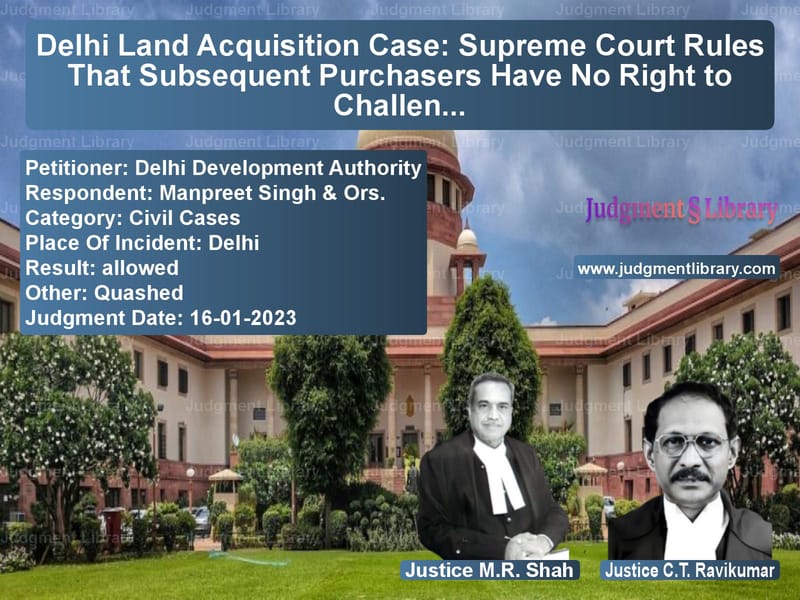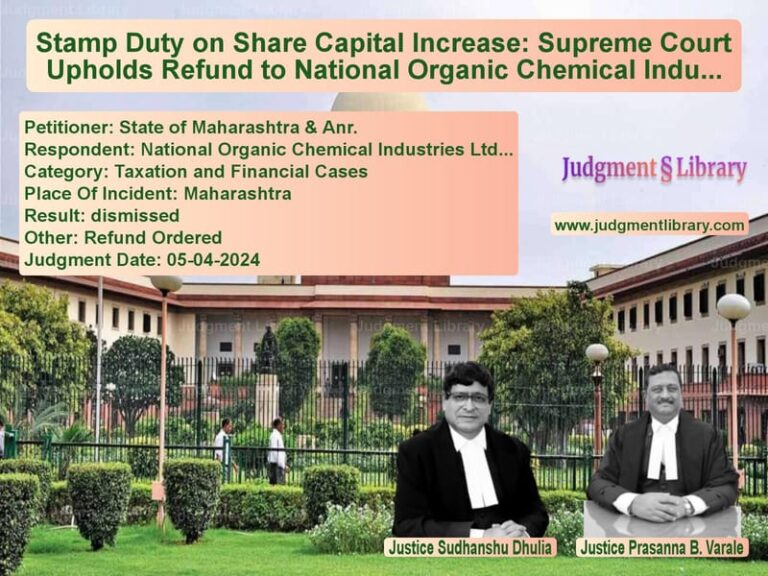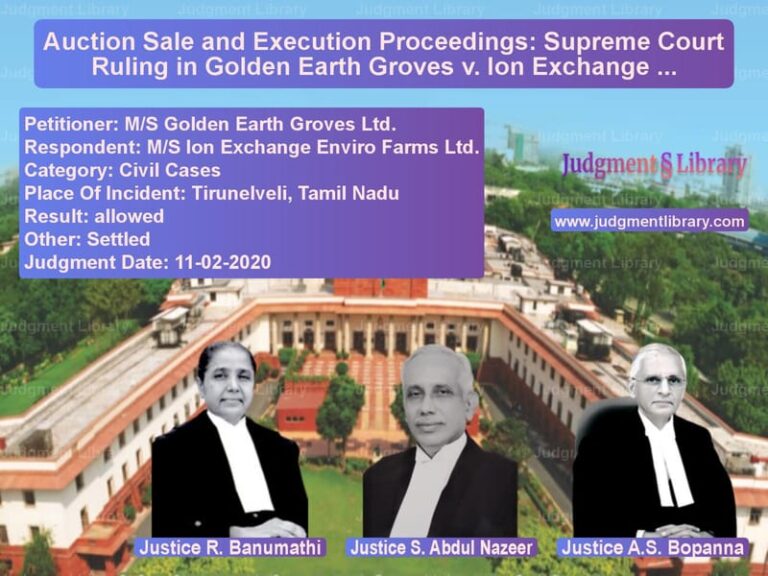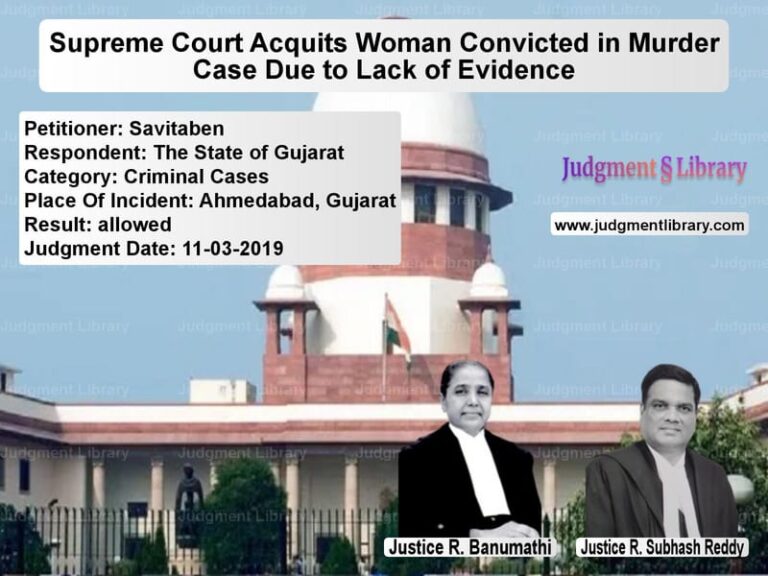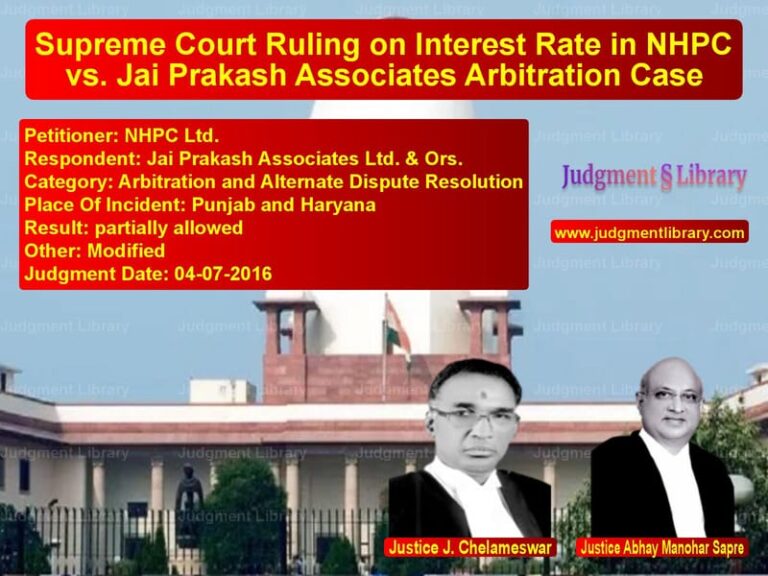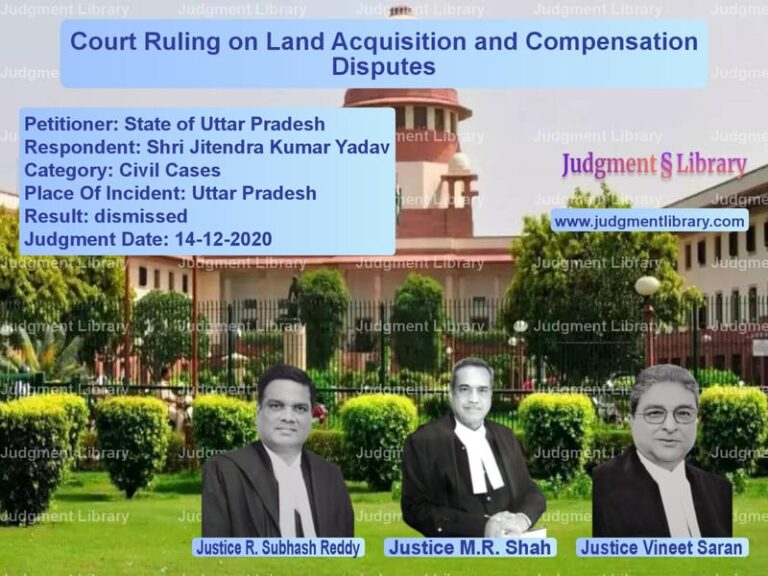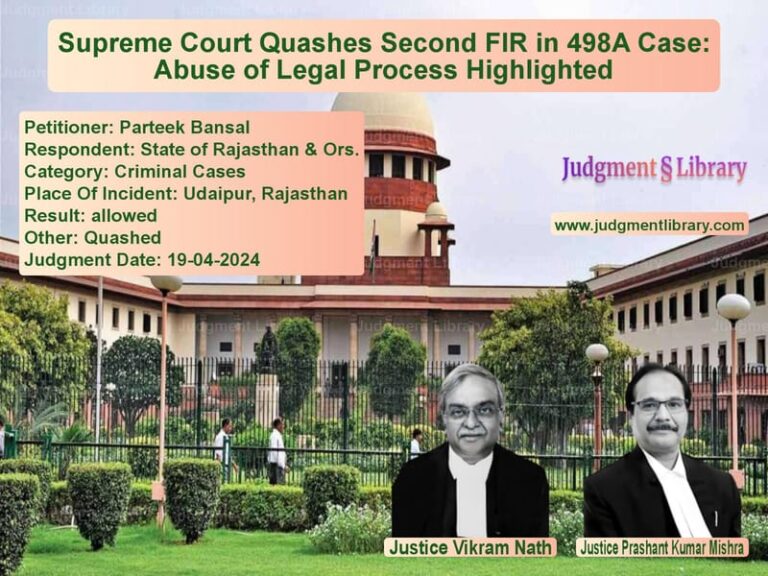Delhi Land Acquisition Case: Supreme Court Rules That Subsequent Purchasers Have No Right to Challenge
The legal battle between the Delhi Development Authority (DDA) and Manpreet Singh & Ors. revolved around a land acquisition dispute that questioned the rights of subsequent purchasers under the Right to Fair Compensation and Transparency in Land Acquisition, Rehabilitation and Resettlement Act, 2013. The Supreme Court of India, in its ruling, reaffirmed the position that subsequent purchasers do not have the right to challenge land acquisition proceedings.
The case arose when Manpreet Singh, the respondent, claimed that the land acquisition should be considered lapsed under Section 24(2) of the 2013 Act. The Delhi High Court ruled in his favor, leading to an appeal by the DDA and the Government of NCT of Delhi before the Supreme Court.
Background of the Case
The land in question was acquired by the government under the Land Acquisition Act of 1894. The key events were:
- Notification under Section 4 of the Land Acquisition Act, 1894 was issued on November 25, 1980.
- The award for compensation was declared on June 5, 1987.
- Manpreet Singh, the respondent, purchased the property in 2018, long after the acquisition process had been completed.
Based on his purchase, Manpreet Singh filed a writ petition in the Delhi High Court, seeking a declaration that the land acquisition had lapsed under Section 24(2) of the 2013 Act.
High Court’s Decision
The Delhi High Court ruled in favor of the respondent, holding that the land acquisition had lapsed. The court relied on the provision in the 2013 Act that states that if possession has not been taken or compensation has not been paid, the acquisition shall be deemed to have lapsed.
Read also: https://judgmentlibrary.com/supreme-court-quashes-high-court-ruling-on-land-acquisition-in-delhi/
Arguments Presented
Petitioners’ Arguments (DDA and Government of NCT of Delhi)
- The respondent was a subsequent purchaser who bought the land in 2018, long after the acquisition process was initiated and the compensation was determined.
- The respondent had no locus standi to challenge the acquisition process, as he was not the original landowner at the time of acquisition.
- The Supreme Court in previous judgments, including Delhi Development Authority v. Godfrey Phillips (I) Ltd. and Delhi Administration v. Pawan Kumar, held that subsequent purchasers do not have the right to challenge the land acquisition process.
- Allowing subsequent purchasers to challenge land acquisitions would create uncertainty and disrupt urban planning and infrastructure development.
Respondent’s Arguments (Manpreet Singh & Ors.)
- The acquisition had lapsed under Section 24(2) of the 2013 Act because possession had not been taken, and compensation had not been paid.
- He had acquired rights over the land through legal means and was entitled to challenge the acquisition.
- The earlier judgment in Shiv Kumar v. Union of India required reconsideration as it did not fully address relevant aspects of the 2013 Act.
Supreme Court’s Judgment
The Supreme Court, while hearing the case, reaffirmed that subsequent purchasers do not have the right to challenge land acquisitions under the 2013 Act. The court made several key observations:
- “The original writ petitioner is a subsequent purchaser, who has acquired the right, title, or interest in the land in the year 2018. He was not the recorded owner at the time of acquisition.”
- “A subsequent purchaser has no locus to challenge the acquisition proceedings or the lapsing of the acquisition under the Act, 2013.”
- The bench relied on the previous rulings in Shiv Kumar v. Union of India, Godfrey Phillips (I) Ltd. & Ors., and Pawan Kumar & Ors. to reiterate that subsequent purchasers cannot claim rights over acquired land.
- The High Court erred in entertaining the writ petition and in declaring the acquisition lapsed at the request of a subsequent purchaser.
Key Takeaways from the Judgment
The Supreme Court’s decision has reinforced important legal principles regarding land acquisition:
- Subsequent Purchasers Have No Locus Standi: The judgment makes it clear that people who buy land after its acquisition cannot challenge the process.
- Section 24(2) Cannot Be Misused: The ruling prevents individuals from purchasing land at a low price and then attempting to invalidate the acquisition by claiming that the process has lapsed.
- Protection of Public Projects: The judgment protects infrastructure and development projects from unnecessary litigation initiated by subsequent purchasers.
Final Verdict
The Supreme Court quashed the Delhi High Court’s ruling and restored the acquisition process. The final judgment held:
- The appeals by the DDA and the Government of NCT of Delhi were allowed.
- The High Court’s judgment was set aside.
- The writ petition filed by Manpreet Singh in the High Court was dismissed.
- There were no orders as to costs, considering the nature of the dispute.
The ruling sets a strong precedent and serves as a reminder that land acquisition laws must be respected, and subsequent purchasers cannot derail government-planned infrastructure and development projects.
Petitioner Name: Delhi Development Authority.Respondent Name: Manpreet Singh & Ors..Judgment By: Justice M.R. Shah, Justice C.T. Ravikumar.Place Of Incident: Delhi.Judgment Date: 16-01-2023.
Don’t miss out on the full details! Download the complete judgment in PDF format below and gain valuable insights instantly!
Download Judgment: delhi-development-au-vs-manpreet-singh-&-ors-supreme-court-of-india-judgment-dated-16-01-2023.pdf
Directly Download Judgment: Directly download this Judgment
See all petitions in Property Disputes
See all petitions in Landlord-Tenant Disputes
See all petitions in Contract Disputes
See all petitions in Judgment by Mukeshkumar Rasikbhai Shah
See all petitions in Judgment by C.T. Ravikumar
See all petitions in allowed
See all petitions in Quashed
See all petitions in supreme court of India judgments January 2023
See all petitions in 2023 judgments
See all posts in Civil Cases Category
See all allowed petitions in Civil Cases Category
See all Dismissed petitions in Civil Cases Category
See all partially allowed petitions in Civil Cases Category

